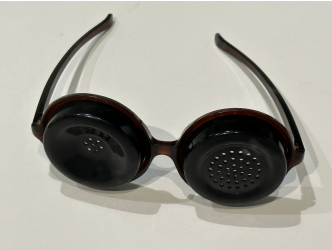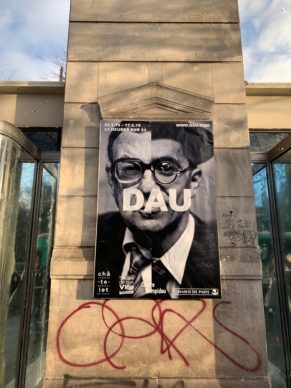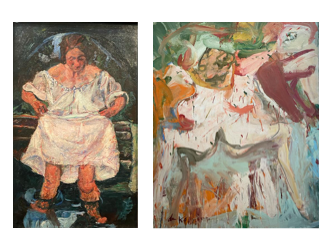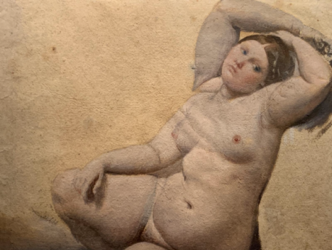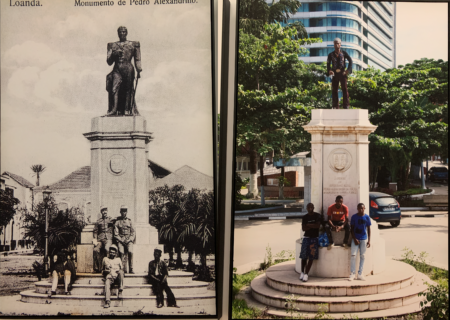
Kiluanji Kia Henda
Cancel culture
At a time when art which addresses societal issues has never been so relevant, exhibiting it in institutions has never proved so difficult. In late August in New York, at the epicentre of what is known as “cancel culture”, a movement which aims to boycott apparently problematic practices over social media, an exhibition at the famous Whitney Museum was cancelled at the last minute, due to be dedicated to artistic collective actions in an America shaken by the fallout of racist crimes and the coronavirus crisis.
Time for apologies
According to the New York Times, this was motivated by the fact that the artists involved “accused the museum of trying capitalize on their work without properly compensating them”.These are times that call for apologies, and you can now read a message in large type on the Whitney’s Instagram account: “We apologize for how we handled the exhibition and the pain and frustration it caused.”
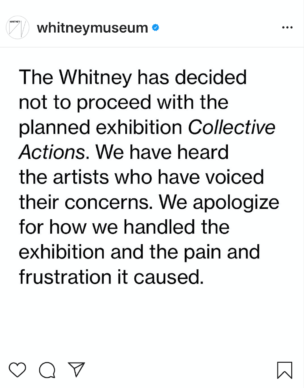
French perspective
Seen from a French perspective, it is regrettable that the show, which sought to act as a counterweight to anti-humanist behaviours and views, has been cancelled.
Global(e) Resistance
It just so happens that on 29 July a large-scale exhibition opened in Paris at the Centre Pompidou to relatively little fanfare, featuring 110 works by 60 current artists and entitled “Global(e) Resistance”, dedicated to non-western art. The idea is to show how these voices for change in the world are approaching subjects that “shock hearts and minds”.
Carbon footprintCoincidentally, the exhibition also reflects the zeitgeist in that it has an excellent carbon footprint, since all the artworks on display belong to the Centre Pompidou.
Fair prices
They have been acquired since 2008 (by an institution funded by public money but also acquired by private donors and for prices we can suppose to be fair).
Barthélémy Toguo
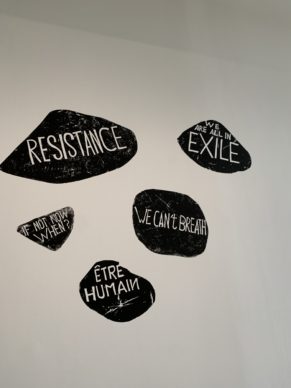
Barthelemy Toguo
One of the stars of the show, who is present throughout the exhibition, is the Cameroonian artist who lives in France, Barthélémy Toguo (born in 1967), who for many years has been collecting slogans from popular uprisings, inspired by Albert Camus, which he makes into giant stamps. This premonitory gesture is applied to phrases such as “We can’t breathe” or “We are all in exile”.
Christine Macel
“We are living through historic times,” explains one of the curators, Christine Macel, who also curated the 2017 Venice Biennale. “The world is changing, and artists are expressing themselves on this context without necessarily going in search of an aesthetic project.”
David Koloane
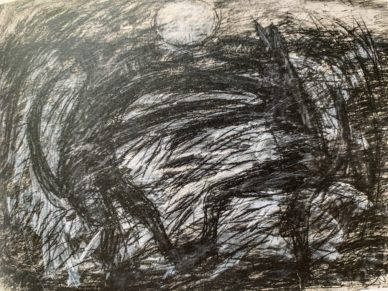
David Koloane
The central figure in the fight against apartheid, David Koloane (1938-2019), made drawings of dogs in an expressionist style as a metaphor for the violence in South African society. (See his interview on the subject of dogs, filmed in South Africa shortly before his death)
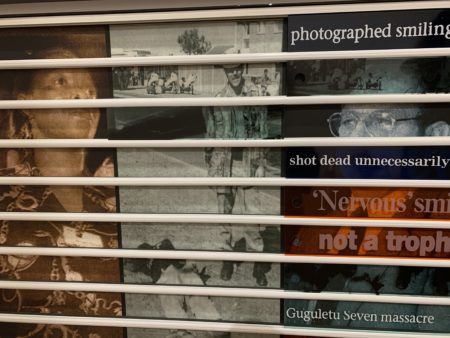
Sue Williamson
Firenze Lai
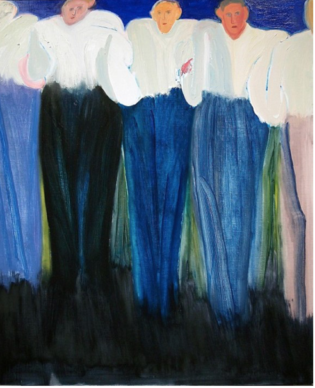
Firenze Lai
In Hong Kong, the young painter Firenze Lai (born in 1987) invented a form of figuration that highlights the representation of the attitudes of people in the city. With their small heads and huge bodies, these figures stand alone even in groups. Firenze Lai, as she explained to me in an interview which can be read here, comes from a very modest family on the island. She is particularly concerned by the social movements affecting the area.
Jonathas de Andrade
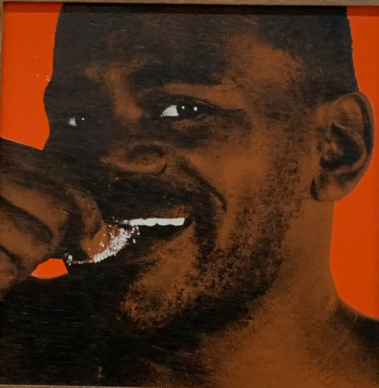
Jonathas de Andrade
One of the most relevant artists from present-day Brazil is Jonathas de Andrade, who examines the familiar imagery of a popular Brazilian banana-based candy called ” Nego Bom”, which translates as “good black” and has colonial connotations. Words carry the weight of the collective unconscious. See here the interview with Jonathas de Andrade on one of his emblematic pieces presented last year at The Istanbul Biennal.
Toppled statues
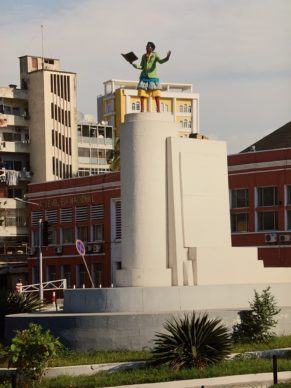
Kiluanji Kia Henda
Lastly, at a time when numerous statues of men once considered to be historically important are being toppled all over the world, the Angolan artist Kiluanji Kia Henda (born in 1979) has made the series “Redefining The Power”, which depicts statues then and now, or how everyday heroes are taking the place of the killers of yesteryear.
Kader Attia
The exhibition also examines more marginal actions, like when the French-Algerian artist Kader Attia (born in 1970) founded “La Colonie” in Paris, a café and centre for the exchange of ideas, which has just closed its doors, sacrificed on the altar of the coronavirus. See the interview with Kader Attia on his retrospective at the MAC VAL.
“Global(e) Resistance” requires time and concentration to identify all these new forms of expression.

Ivan Argote
Until 4 January. https://www.centrepompidou.fr/
Donating=Supporting

Support independent news on art.
Your contribution : Make a monthly commitment to support JB Reports or a one off contribution as and when you feel like it. Choose the option that suits you best.
Need to cancel a recurring donation? Please go here.
The donation is considered to be a subscription for a fee set by the donor and for a duration also set by the donor.

